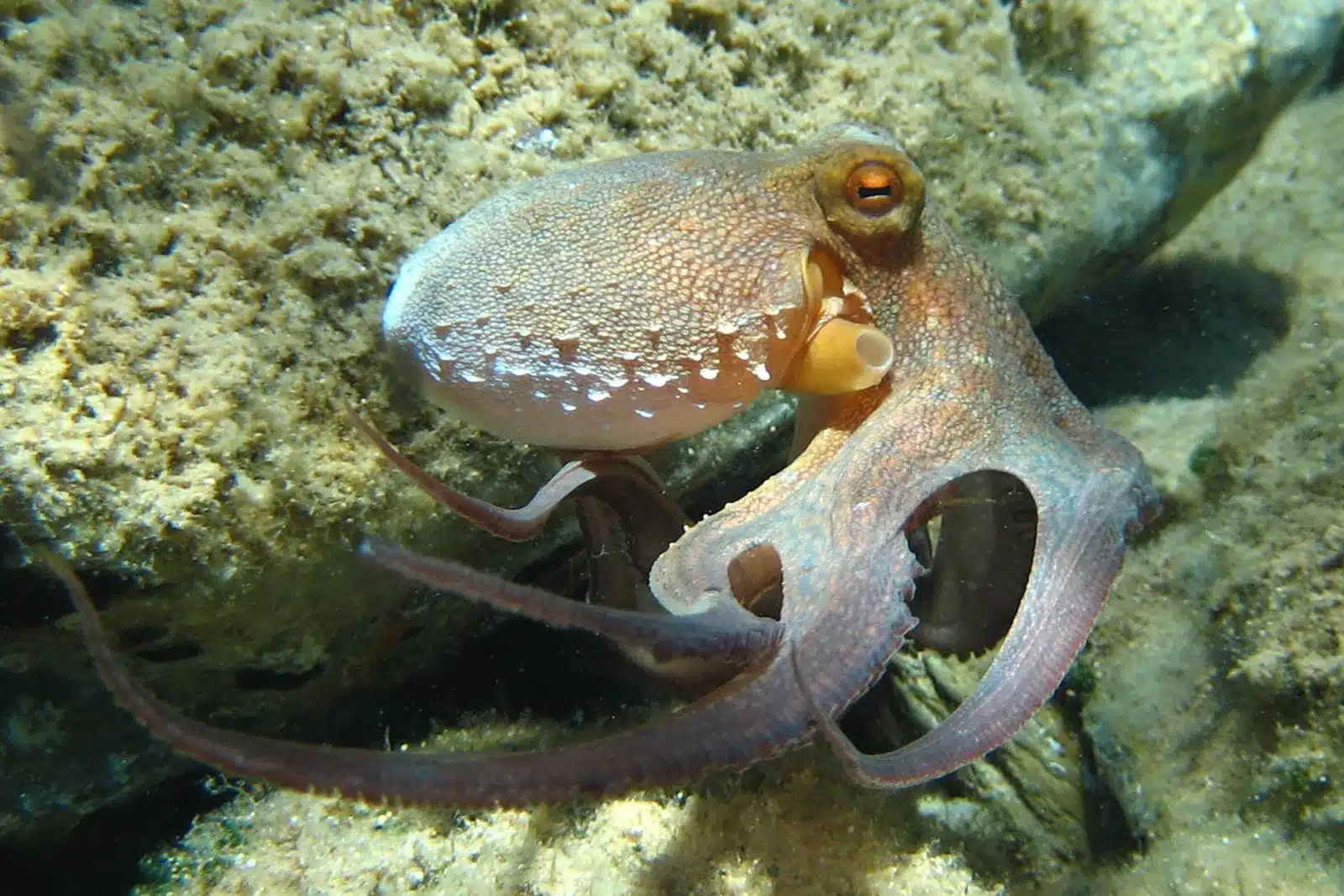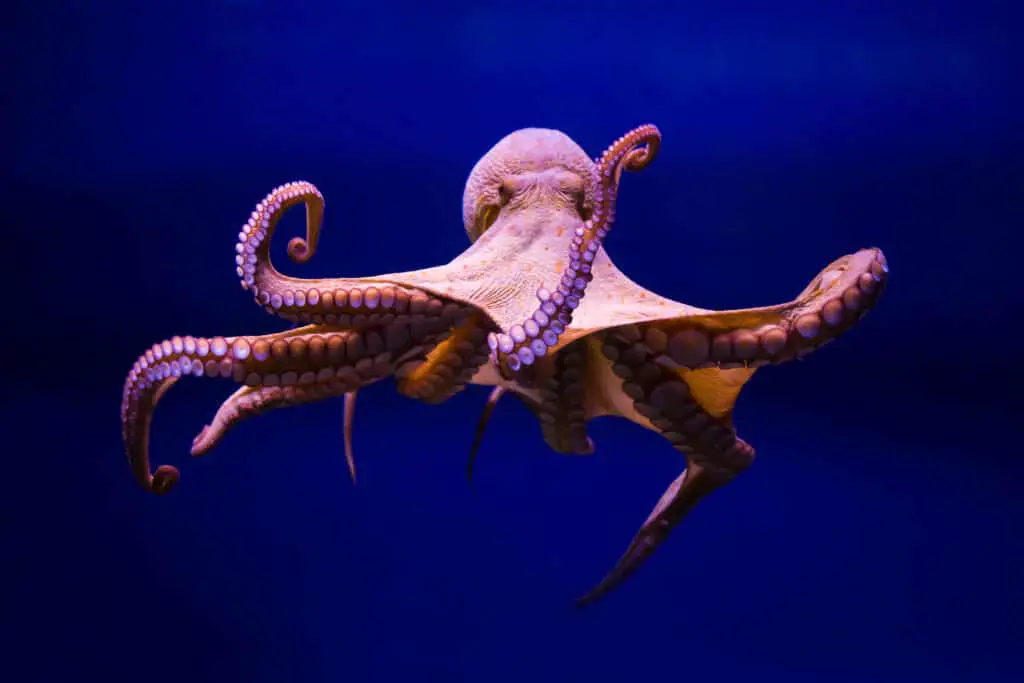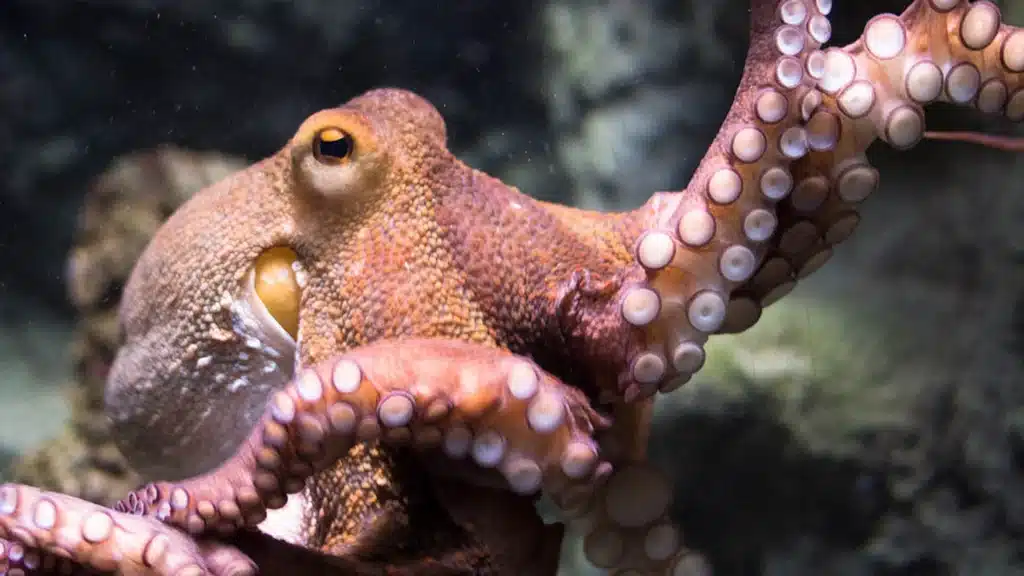Does An Octopus Lay Eggs

Introduction
Does An Octopus Lay Eggs: The enigmatic world of marine life has always fascinated scientists and enthusiasts alike, with each species revealing unique adaptations and survival strategies. Among the most captivating creatures of the deep is the octopus, known for its intelligence, remarkable camouflage abilities, and, of course, its distinct appearance. However, one aspect of the octopus’s life cycle has long puzzled researchers and curious minds: their mode of reproduction.
This seemingly straightforward question delves into the complex reproductive biology of octopuses, shedding light on their intriguing journey from conception to offspring. While some may assume that octopuses, like many other marine animals, lay eggs, the reality is far more intricate. Octopuses belong to a class of marine animals known as cephalopods, which also includes squids and cuttlefish. These cephalopods exhibit a diverse range of reproductive strategies, making it essential to explore the specific mechanisms employed by octopuses in giving birth to the next generation.
In this exploration, we will unravel the mysteries surrounding octopus reproduction, examining the different species, variations in reproductive methods, and the fascinating strategies employed by these creatures to ensure the survival of their young in the unpredictable underwater world.

Does an octopus give live birth and lay eggs?
Octopuses are semelparous animals, which means they reproduce once and then they die. After a female octopus lays a clutch of eggs, she quits eating and wastes away; by the time the eggs hatch, she dies.
Octopuses are intriguing creatures with a fascinating approach to reproduction that challenges our conventional understanding. While they are not known for giving live birth like mammals, they also don’t fit the traditional image of animals that lay eggs and then nurture their offspring. Instead, octopuses follow a unique path in the realm of reproduction.
Octopuses are egg layers, but the process is anything but ordinary. They invest extensive care into their eggs, meticulously tending to them until they hatch. Females typically lay numerous eggs in a safe location, using their arms to create a protective lair. They guard these eggs with unwavering dedication, ensuring they are well-aerated and free from potential threats. During this period, which varies depending on the species, octopus mothers cease feeding and often die shortly after the eggs hatch, sacrificing their own lives for the survival of their young.
This distinctive reproductive strategy showcases the remarkable adaptability and complexity of octopuses in the underwater world. It’s a testament to the diversity of life on Earth, where each species has evolved its own extraordinary methods to ensure the continuation of its kind. In essence, octopuses neither give live birth nor lay eggs in the conventional sense; they create a captivating blend of both, revealing the wonders of nature’s endless surprises.
How many octopus lay eggs?
The total number of eggs laid by a female varies from 100,000 to 500,000. During egg laying and subsequent brooding, the female rarely leaves the egg mass. She usually does not feed during the entire period of spawning and brooding, which can be as long as 4-5 months at low temperatures.
The reproductive habits of octopuses, like their appearances and behaviors, vary widely across different species. While the majority of octopus species are known to lay eggs, not all of them follow this specific reproductive pattern.
Most octopus species do indeed lay eggs, and they do so in diverse ways. Some octopuses lay a few large eggs, while others produce numerous small ones. These eggs can be attached to a substrate, hidden in crevices, or even carried by the female until they hatch. The process of egg-laying is an essential part of their life cycle, as it ensures the survival of their offspring in the perilous underwater environment.
However, there are exceptions to this rule. For instance, the deep-sea octopus, Graneledone boreopacifica, is one of the few known species that exhibits a unique form of maternal care by guarding and aerating her eggs, but she does not lay them. Instead, she retains them inside her body until they hatch, making her one of the rare octopuses that do not lay external eggs.
While the majority of octopus species lay eggs as part of their reproductive process, nature’s diversity surprises us with exceptions like the deep-sea octopus, which showcases the intricate and multifaceted world of cephalopod reproduction.
Do giant octopus lay eggs?
The Giant Pacific Octopus spends most of its life in solitude; it seeks out a mate near the end of life. The males pass a spermatophore into the female’s mantle during mating, he dies a few weeks later. About 40 days after mating, the female will find a rocky den and lay up to 100,000 eggs in long strands.
Yes, giant octopuses, like other octopus species, do lay eggs. The giant octopus, specifically the North Pacific Giant Octopus (Enteroctopus dofleini), is known for its impressive size and is among the largest octopus species in the world. Despite their enormous size, they adhere to the fundamental octopus reproductive pattern of laying eggs.
Female giant octopuses, after a period of courtship and mating with males, produce thousands of small eggs, typically about the size of a grain of rice. These eggs are laid in clusters and are attached to a secure surface, such as rocks or other underwater structures, using a gelatinous substance that helps keep them in place. The female diligently guards these eggs, aerating them by gently blowing water over them and defending them against potential predators.
This maternal care continues until the eggs hatch, which can take several weeks, depending on environmental conditions like temperature and water quality. Once the eggs hatch, the female octopus’s role in reproduction is complete, and she often dies shortly after, as is common among many octopus species.
So, even though giant octopuses are giants of the deep, their reproductive behavior aligns with that of their smaller octopus relatives, highlighting the remarkable consistency of octopus reproduction across various species.
Which octopus lay eggs?
Octopuses have two reproductive strategies. The common octopus, Octopus vulgaris, lays 100,000 to 500,000 small eggs that hatch into planktonic young. O. briareus, on the other hand, lays approximately 500 large eggs which hatch into benthic young (Sweeney 1992).
Octopuses, fascinating creatures of the ocean, display a remarkable range of behaviors when it comes to reproduction. Among the various species of octopuses, it’s the female that takes the lead in parenting. While most octopuses are known to lay eggs, not all species follow this pattern.
Octopuses typically lay their eggs in well-protected areas, such as rocky crevices or holes, to keep them safe from predators. The female octopus carefully guards her clutch of eggs, sometimes even forgoing food to ensure their safety.
For instance, the common octopus (Octopus vulgaris) and the giant Pacific octopus (Enteroctopus dofleini) are egg-laying species. However, the blue-ringed octopus (genus Hapalochlaena) is one notable exception, as it gives birth to live offspring. These tiny, venomous creatures are known for their striking appearance and potent venom.
Octopuses exhibit a diverse range of reproductive strategies, with some species laying eggs and others giving birth to live young, showcasing the marvels of nature’s adaptability beneath the waves.
How long is a octopus pregnant?
We begin with a pregnant octopus. She’s been that way for four or five months, carrying the eggs inside her body until one day, in mid winter, when the water temperature is right, she starts expelling her eggs, one by one, into the water.
Octopuses, intriguing denizens of the deep, have a unique and relatively short reproductive cycle compared to many other animals. They don’t experience a traditional pregnancy in the way mammals do, but rather they have a brief period of egg incubation. Typically, the time from when a female octopus lays her eggs to when they hatch can vary among species but generally ranges from a few weeks to several months.
The duration of this incubation period depends on several factors, including the octopus species, water temperature, and environmental conditions. For example, in warmer waters, the incubation period tends to be shorter, while in colder regions, it may be longer. On average, it can last from one to six months.
During this incubation period, the female octopus is incredibly devoted to guarding her eggs, often foregoing eating and focusing all her energy on protecting and caring for them.
After this incubation period, the baby octopuses, known as hatchlings, emerge from the eggs and start their independent lives in the ocean. The brevity of the octopus’s reproductive cycle is a remarkable adaptation to the challenges of life in the ocean, allowing them to produce multiple generations relatively quickly compared to other, longer-lived marine creatures.
How long do octopus eggs take to hatch?
Octopus eggs undergo a fascinating journey before hatching. Typically, the gestation period varies among different species, but it generally ranges from one to three months. For instance, the common octopus (Octopus vulgaris) carries its eggs for about 50 to 60 days, while deeper-dwelling species like the giant Pacific octopus (Enteroctopus dofleini) may incubate their eggs for up to five months.
During this period, the female octopus guards her precious clutch with unwavering devotion, diligently aerating them and keeping them free from potential predators. Interestingly, she refrains from eating during this time, expending all her energy reserves on ensuring the safety of her offspring.
As the embryos mature, they undergo a remarkable transformation. From tiny, translucent spheres, they evolve into miniature replicas of their adult forms. When the time is right, the tiny octopuses, each about the size of a grain of rice, emerge from their protective capsules.
Drifting into the open ocean, they begin their solitary journeys, equipped with instincts honed through millions of years of evolution. This moment of hatching marks the beginning of a perilous yet awe-inspiring adventure for these remarkable creatures, as they navigate the vastness of the ocean, mastering their environment and securing their place in the intricate web of marine life.
How do octopus reproduce eggs?
Octopuses have a unique and intricate process of reproducing and caring for their eggs. Typically, reproduction begins with an elaborate courtship ritual, where the male uses specialized arm modifications called hectocotyli to transfer sperm packets into the female’s mantle cavity. This intricate mating dance ensures successful fertilization.
After fertilization, the female devotes herself entirely to safeguarding the precious cargo of eggs. She finds a suitable shelter, often a crevice or den, where she anchors the cluster of eggs, called a “clutch,” using a combination of adhesive secretions and her own body. Throughout this period, which can span from a few weeks to several months, she remains vigilant, guarding the eggs from potential threats.
Remarkably, the female refrains from feeding during this time, directing all her energy towards tending to her offspring. She circulates water over the eggs, ensuring they receive oxygen and remain free from debris. Her maternal instincts are extraordinary, and she’ll defend her clutch fiercely, even sacrificing her own life if necessary.
As the eggs near the end of their incubation period, they begin to change in appearance, indicating the impending hatching. When the moment arrives, the tiny, fully-formed octopuses emerge, ready to embark on their independent journeys through the vast ocean, a testament to the marvels of octopus reproduction and maternal devotion.
Are there any exceptions to octopuses laying eggs?
While the majority of octopus species are known for laying eggs, there are indeed exceptions to this rule within the fascinating world of cephalopods. The most notable exception is the group of octopuses known as “viviparous” or “live-bearing” octopuses. These unique species do not lay eggs like their counterparts but instead give birth to live offspring.
One of the most well-known examples of a live-bearing octopus is the aptly named “giant Pacific octopus” (Enteroctopus dofleini). Female giant Pacific octopuses carry their eggs underneath their arms in specialized structures called “brood pouches.” Here, the eggs are protected and receive a constant flow of oxygen-rich water, similar to those laid in egg clusters. Once the eggs hatch, the female releases live baby octopuses into the ocean.
Another remarkable example is the blue-ringed octopus (genus Hapalochlaena), which also gives birth to live young. These small, venomous cephalopods are known for their striking blue rings and potent venom but stand out further due to their reproductive method. While most octopuses lay eggs and diligently care for them until they hatch, it’s important to remember that there are exceptions in the cephalopod family.

Conclusion
The exploration of whether or not octopuses lay eggs has taken us on a fascinating journey into the intricate world of marine biology and cephalopod reproduction.
Octopuses, indeed, lay eggs, but the process is far more complex and diverse than initially assumed. Each species within the octopus family exhibits unique adaptations and reproductive strategies. Some species lay their eggs in hidden crevices or attach them to underwater structures, carefully guarding and aerating them to ensure their survival. Others engage in a one-time reproductive act, resulting in their demise shortly after hatching.
This diversity of strategies highlights the remarkable adaptability of octopuses to their respective environments and life histories. It emphasizes the critical role that these enigmatic creatures play in maintaining the balance of marine ecosystems.
In our quest to understand whether octopuses lay eggs, we have also gained insight into the broader realm of marine science, emphasizing the importance of continued research and conservation efforts to protect these captivating creatures and the delicate ecosystems they inhabit.
Ultimately, the answer to our initial question is both simple and complex: yes, octopuses lay eggs, but their reproductive journey encompasses a rich tapestry of strategies and behaviors that continue to captivate and inspire those who seek to unravel the mysteries of the deep ocean.



